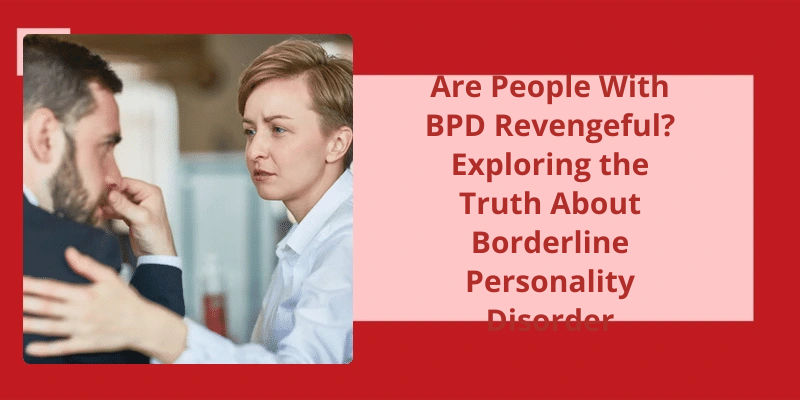As human beings, we’re wired to communicate and connect with each other through various forms of expression, including facial expressions. A smile is often seen as a universal symbol of warmth, happiness, and friendliness. It’s a simple gesture that can brighten someone's day and create a positive social atmosphere. However, there are some individuals who rarely or never smile, and this can often raise questions about their emotions, personality, and behavior. Whether it’s due to shyness, depression, social anxiety, or other underlying reasons, a man who never smiles can often be perceived as aloof, unfriendly, or unapproachable. This can have an impact on his personal and professional relationships, as it can affect how others view and interact with him. In this article, we will explore the reasons why some men never smile and the potential impact this may have on their lives.
What Does It Mean When a Guy Looks at You but Doesn T Smile?
It’s possible that his personality is reticent, leading to his lack of a smile. In these types of situations, it can be difficult to determine what he’s thinking, and the absence of any nonverbal cues can make it even more challenging. However, it shouldnt be assumed that lack of a smile is a negative sign; it could mean the exact opposite. In fact, some of the most meaningful interactions people have arent accompanied by a smile.
On the other hand, if a guy looks at you without smiling, he might not be interested. A lack of positive body language might be an indication that he either doesn’t find you attractive or isnt interested in engaging with you. This is where intuition plays a crucial role. If you sense that hes bored or unresponsive, take a step back and look for signs of disinterest. If you don’t suspect that hes uninterested, then it’s a good idea to keep the conversation going and try to read his body language for any indications of his thoughts and feelings.
It’s also important to recognize that everyone has their own unique way of expressing emotions and attraction. Some people are more reserved than others, and they may struggle to express themselves and their feelings. This doesn’t necessarily mean that they arent interested; it simply means they express themselves differently.
It’s vital not to get caught up in worrying about whether or not a guy is interested based solely on his facial expression. It’s essential to pay attention to other nonverbal cues and how he behaves around you. These behaviors can offer you a far better indication of his feelings and level of attraction.
It might be indicative of interest, or it could be an indication of disinterest. In other situations, it may reflect how he typically expresses himself. The vital thing is to read the situation carefully, consider his nonverbal communication and how he behaves around you. Dont leap to conclusions about what hes thinking or feeling based on one signal. Focus on collecting as much information as possible about his behavior to make a reasonable conclusion.
The Potential Reasons Why a Guy Might Choose Not to Smile Even if He Is Interested
- He may be shy or socially anxious
- He may not want to appear too eager or interested
- He may have cultural or personal reasons for not smiling
- He may be trying to convey a serious or mysterious image
- He may be self-conscious about his smile or teeth
- He may be experiencing physical or emotional pain
- He may have a medical condition that affects his ability to smile
- He may simply have a neutral or introverted personality
It’s often said that a smile can go a long way, and this sentiment certainly holds true when it comes to men and their perceived trustworthiness. A simple grin can make all the difference in whether someone sees you as honest and reliable, or skeptical and untrustworthy. In fact, studies have shown that men who smile are far more likely to be viewed in a positive light, which can have a significant impact on their personal and professional lives. Let’s take a closer look at why a smile is so important for guys, and how they can make the most of this simple yet powerful gesture.
How Important Is a Smile on a Guy?
In addition to this, research has shown that a smile can have a huge impact on how others perceive your attractiveness. For both men and women, a smile that reaches the eyes can make you appear more attractive and approachable, which can be particularly beneficial when it comes to dating and socializing.
But it’s not just about how others perceive you – there are also health benefits to smiling. Smiling has been shown to reduce stress levels and lower blood pressure, as well as boosting your mood and making you feel happier overall. This means that a guy who smiles regularly is likely to be more relaxed, positive and easy-going – all qualities that many people find very attractive.
Of course, there are some situations where a smile might not be appropriate – for example, in a serious work environment or during a difficult conversation. In these situations, it’s important to be able to modulate your expression and convey the appropriate level of seriousness or concern. However, when it comes to socializing and building relationships, a smile can be a powerful tool that can help you connect with others and build trust.
So overall, it’s clear that a smile can be very important when it comes to how others perceive a guy. So next time youre out socializing or meeting new people, remember to let your smile shine through – it might just make all the difference!
The Science Behind Why Smiling Is Contagious and How It Can Improve Social Interactions
Smiling is contagious because of a natural human tendency to mimic the facial expressions of others. When we see someone else smile, our brain triggers a neural response that makes us want to smile in return. This phenomenon improves social interactions because it can create a positive and welcoming atmosphere, while also increasing feelings of empathy and connection with others.
Source: Are smiling men less attractive?..
Regardless of the cause, losing the ability to smile can have a negative impact on your emotional well-being and social life. In this article, we will explore the various ways in which you can overcome this challenge and rediscover the joy of smiling.
What Causes You Not to Smile?
It can be extremely difficult for someone who can no longer smile, especially since a smile is so often associated with expressing happiness, joy, and gratitude. Many people who’re unable to smile may feel self-conscious, or may even feel like they’re no longer able to connect with others in the same way that they once did. Additionally, being unable to smile can make it difficult to go about your daily life, especially if you work in a service-oriented field where smiling and offering a friendly demeanor is crucial.
Knowing the potential causes and seeking support from trusted individuals can help you navigate this experience and find new ways to connect with yourself and others. It’s important to remember that you aren’t alone, and that there are resources available to help you find ways to cope, heal, and live a fulfilling life. Whether it’s seeking medical treatment, talking to a therapist, or connecting with a support group, taking the steps to prioritize your own emotional and physical health can help you find ways to smile – if not today, then in the future.
How to Cope and Manage Emotions When Unable to Smile
Managing emotions when unable to smile can be challenging. It’s important to acknowledge the emotions you’re feeling and find healthy ways to cope with them. This might involve talking to a trusted friend or therapist, using relaxation techniques like deep breathing or meditation, or engaging in activities that bring you joy and relaxation. Remember that it’s okay to feel difficult emotions and that seeking support is a sign of strength.
While we’re often encouraged to smile and think positively, recent research suggests that these behaviors may not always lead to better emotional well-being. In fact, constantly forcing a smile when we don’t feel happy could do more harm than good in the long run. Here’s why you might want to think twice before putting on a fake smile.
Why You Should Not Always Smile?
One reason why you shouldn’t always smile is because it can be disingenuous. When people fake their emotions through a smile, it can become transparent to others. This can make you appear insincere or even untrustworthy. People are often more drawn to those who’re authentic and honest, even if that means not always showing a smile.
Additionally, forcing a smile when youre feeling down can actually make you feel worse. The act of smiling can be mentally and physically exhausting, especially if youre doing it in an attempt to cover up negative emotions. This can lead to increased stress and even depression. It’s important to acknowledge and process your emotions rather than trying to hide them behind a smile.
Furthermore, always smiling can lead to a lack of boundaries. People may perceive you as always being available and willing to help, even when it comes at your own expense. This can be detrimental to your mental health and well-being, as you may feel overwhelmed and unable to say no. By showing a range of emotions, including sadness or frustration, you can communicate your needs and boundaries more effectively.
This is the idea that we should always try to be happy and positive, even in the face of difficult or challenging situations. While it’s important to maintain a positive outlook, it’s also healthy to acknowledge and process negative emotions. By constantly smiling, we may inadvertently dismiss or minimize the struggles of others.
Finally, smiling just because you feel like you should can be a disservice to your own authenticity. By allowing yourself to experience and express a range of emotions, you can cultivate deeper connections with others and with yourself. So, don’t feel like you always have to put on a happy face – sometimes being real is the best thing you can do.
The Cultural Differences in Smiling: In Some Cultures, Smiling Is Seen as a Form of Politeness or a Way to Show Agreement Regardless of How One Truly Feels. This Topic Would Explore How Cultural Differences Affect Our Perception of Smiles and How They Are Interpreted.
The topic is about the cultural differences in smiling. It delves into how different cultures perceive and interpret smiles. In some cultures, a smile is seen as a sign of agreement or politeness, regardless of the person’s true emotions.
As humans, we often use our facial expressions to convey our emotions and intentions. Smiling is one such expression that’s often associated with happiness, kindness, and approachability. However, some people choose not to smile or naturally have a serious or stern expression. This can be misinterpreted by others and lead to misunderstandings. In this article, we will explore what not smiling means and why some people don’t smile often.
What Does Not Smiling Mean?
Not smiling can convey a variety of meanings depending on the context. In some situations, it may indicate a lack of interest or enthusiasm, while in others, it may suggest anger or disapproval. For example, a stern, unsmiling teacher may be perceived as disapproving of her students behavior, while someone who’s unsmiling at a party may be perceived as aloof or distant.
Not smiling can be a cultural phenomenon as well. In these cultures, people may prefer to maintain a more serious or somber expression, even when they’re experiencing joy or happiness. Similarly, in some professions, such as law enforcement or the military, a serious or unsmiling demeanor may be seen as an important part of projecting authority and control.
At times, not smiling may be a deliberate choice. For example, someone may choose not to smile in order to appear more assertive or to project a sense of confidence or power. In other cases, someone may choose not to smile as a form of self-protection, to avoid appearing vulnerable or approachable. In some situations, such as a job interview or a first date, not smiling may be seen as a way of creating a professional or formal impression.
Of course, not everyone who’s unsmiling is doing so intentionally or consciously. Some people struggle with smiling for a variety of reasons, such as insecurity or shyness. Others may be experiencing physical discomfort, such as tooth pain, that makes it difficult to smile. Whatever the cause, it’s important to recognize that not everyone who appears unsmiling is necessarily unhappy or unfriendly.
While a stern, unsmiling teacher may be seen as intimidating by her students, a serious, unsmiling CEO may be perceived as authoritative and in control. Understanding the nuances of nonverbal communication, including facial expressions and body language, is an important part of effective communication in both personal and professional contexts.
The Impact of Smiling on Mental Health and Well-Being
Smiling has a positive impact on mental health and well-being. It can lead to the release of endorphins, increase feelings of happiness, reduce stress, and improve social interactions.
Conclusion
In conclusion, a man's lack of smiling can have a variety of potential meanings and underlying causes. It’s important to consider factors such as cultural background, personal experiences and psychological conditions that may contribute to this behavior. Additionally, it’s essential to approach the individual with empathy and understanding, rather than assumptions or judgement, to better understand their unique perspective. At the end of the day, each person is complex and multifaceted, and it’s never wise to make sweeping generalizations or assumptions based solely on their outward appearance.






